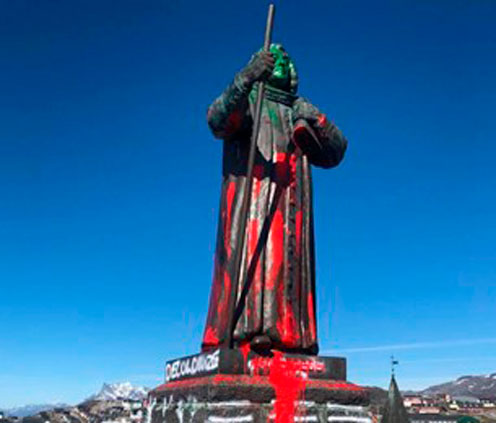Inaugural Symposium of The MSA Nordic
(Nordic Regional Group of the Memory Studies Association)
 This conference brings together scholars of cultural and collective memory and researchers working on memory questions within related disciplines (oral history, heritage studies, history, ethnography, political science, psychology etc.).
This conference brings together scholars of cultural and collective memory and researchers working on memory questions within related disciplines (oral history, heritage studies, history, ethnography, political science, psychology etc.).
Keynote: Eneken Laanes (University of Tallinn): Born Translated Memories: Transnational Memory, Domestication and Foreignisation
Panels and papers address issues such as:
- Administrations of memory and memory politics in Europe and beyond
- Post-colonial memory in the North and North Atlantic region
- Transnational memory in Europe
- Possibilities and limitations of “prosthetic memory”
- Teaching history and memory
The conference is free and open to all students and staff at the University of Copenhagen, but due to corona restrictions, we need to register all on site participants. Online participation is not limited. If you would like to participate, please send a message to Tea Sindbæk Andersen.
Draft pogramme
The programme combines digital and online session.
10:15 Welcome (room 15A-0-13)
10:30-12:00 Museums, memories and representations (on site panel, room 10-3-28)
|
A shared authority? Personal memories as museum dissemination |
|
What Does it Mean to be Polish? Forging an Identity in Polish History Museums |
|
Making the Museum of Movements: Memory, politics and museum activism on the move |
|
Re-membering: Telling Stories, Routing Solidarity |
10:30-12:00 Administration of memories (on site panel, room 15A-0-13)
Chair: Tea Sindbæk Andersen
|
Negotiating ”Green Cultural Heritage”: between Conservation, Preservation, History and Memory. The case of Sweden |
|
Political discourse, national identity politics and public opinion of refugees: A snapshot from Poland |
|
The Past and Future are Present: Agonistic Dialogue and the Status of Consensus and Conflict in Northern Ireland |
|
Hallowed by thy war Helicopter. Reshaping the Serbian Orthodox memory of St. Jovan Vladimir after communism |
12:00-13:00 Lunch and business meeting (room 15A-0-13)
13:00-14:15 Prosthetic memory and mediation (on site panel, room 15A-0-13)
Chair: Anne Brædder
|
Film and prosthetic memory. The reception of the Polish film “Hatred” |
|
Narratology of Prosthetic memory? – Literary representations of war crimes in Višegrad |
|
’Fiction keeps the memory of the war alive’ – readers’ reactions to literature of the war in Bosnia |
13:00-14:15 Oral history and Memorial voices (on site panel, room 15A-0-13)
Chair: Sara Dybris McQuaid
|
“We just moved in, and this is it”: Accommodation and private space as a site of (dis)remembrance of the vanished East-Central European populations |
|
Pathway to the Past? Methodologies for Memories of a Contested Job: Practicing Oral History “off the record” and the Car Ride as a research event |
|
To open the drawer – transformations of the self and the social world through memory-work among former institutionalized children |
14:15-14:45 Coffee (15A-0-13)
14:45-16:00 Keynote (Digital, screening in room 15A-0-13)
Chair: Jessica Ortner
|
Born Translated Memories: Transnational Memory, Domestication and Foreignisation |
16:15 Excursion to the Danish “Freedom Museum” (Museum of Danish Resistance)
19:00 Dinner (self-paid)
09:00-10:15 Memorial voices (digital panel, screening in room 15A-0-13)
Chair: Sara Dybris McQuaid
|
Social adaptation of Belarusian women migrant workers on Latvian-Belarusian borderland in 1950s-1970s |
|
Oblivion and Reception of the Soviet Repression of Ingrian Finns |
|
Echoes of the Missing: Absence as memory and heritage |
09:00-10:15 Literature and memory practices (digital panel, screening in room 10-3-28)
Chair: Jessica Ortner
|
Exacting Justice: Seamus Heaney’s Bog Poems and the Poetry of Witness |
|
Two writers return with their memories: The reception of war accounts by Saša Stanišić and Alen Mešković |
10:15-10:45 Coffee
10:45-12:15 Museums and National Memory (digital panel, screening in room 15A-0-13)
Chair: Sara Dybris McQuaid
|
Freedom in Museums: Estonian and Finnish National Histories at Labour Museum Werstas and Vabamu Museum of Occupations and Freedom |
|
Old spaces, new histories: Svaneholm Castle Museum in the 21st Century |
|
The ‘Mounting’ Memory Regulation Regime: Poland’s 'Memory Laws' and Democracy in 1989-2020 |
|
Memory at the negotiating table? National Narratives and the Israeli-Palestinian Peace Process |
10:45-12:15 Competing Memories: Understanding Twofold Histories of Border Town (digital panel, screening in room 10-3-28)
Chair: Jessica Ortner
|
Flensbourg: A Border City with Many Histories |
|
From Stettin / Szczecin to Stecin / Szczettin: Competing or entangled mnemonic discourses? |
|
The Old Cathedral of Vyborg as a site of memory |
|
Vyborg is Y/ours: Meanings and memories of a borderland city amongst young people in Finland |
12:15-13:00 Lunch
13:00-14:15 Memory in Urban Spaces: A cultural psychological approach (on site panel), room 15A-0-13
Chair: Jessica Ortner
|
Making meaning of memorials |
|
From the Elites to the Streets: Memory and Social Change |
|
Empty squares |
13:00-14:15 Transnational, travelling and entangled memories (on site panel, room 10-3-28)
Chair: Tea Sindbæk Andersen
|
Entanglement and Historical Memory: Re-constituting Scandinavia in Global Palestine |
|
Sharing and challenging memories about European pasts in national and transnational conversations on Twitter during the final of the Eurovision Song Contest |
|
Travelling memory in artworks by Ex-Yugoslavian artists now residing in Denmark |
14:15-14:45 Coffee (15A-0-13)
14:45-16:00 Media, archives and teaching (digital panel, screening in room 10-3-28)
Chair: Tea Sindbæk Andersen
|
Distributed Memory |
|
Countering colonial amnesia - Recognizing Nordic colonialism in digital film archives |
|
Teaching memory politics after empire |
|
Memory, War and Histories from the Margins |
14:45-16:15 Activating memory (on site panel, room 15A-0-13)
Chair: Sara Dybris McQuaid
|
Renaming the streets. Postcolonial memory activism in Berlin |
|
Recycled solidarity. The mnemonic fuel of (inter-group) solidarity in contemporary Poland |
|
Silence, violence and gendered resistance |
|
A tale of two monuments – On memory politics in the entangled cities of Nuuk and Copenhagen |

